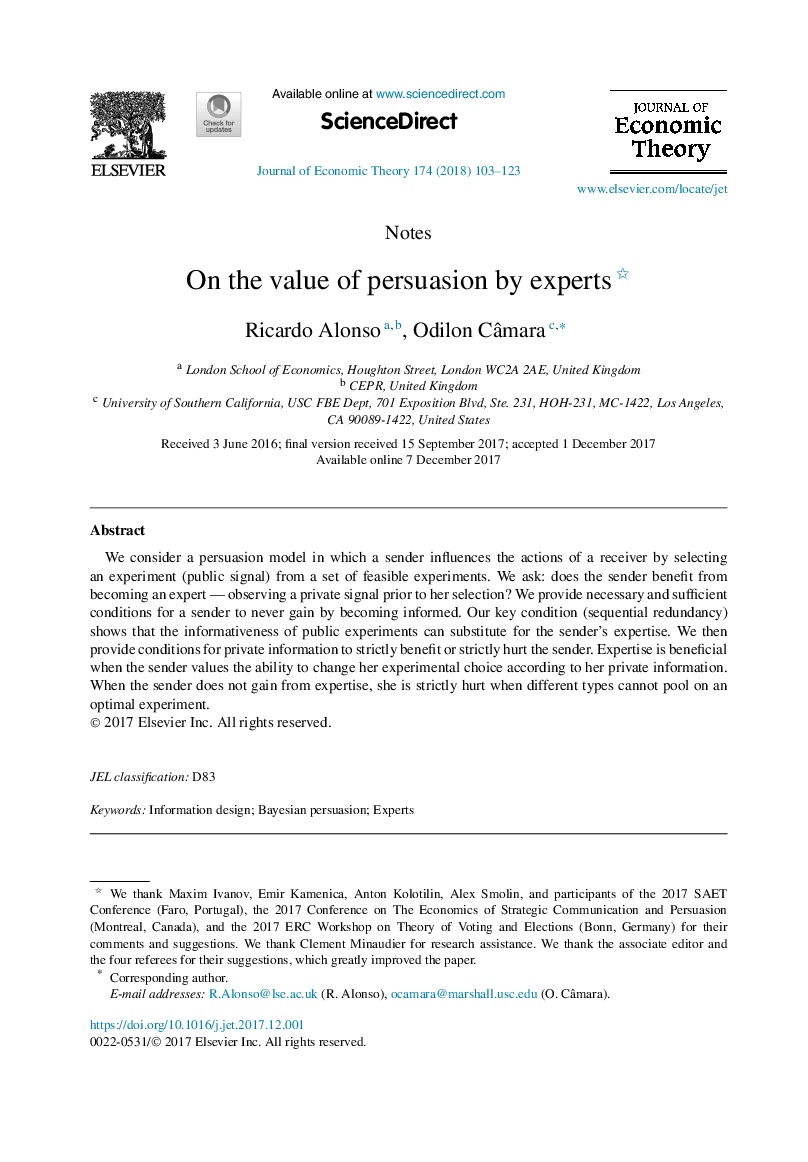| Article ID | Journal | Published Year | Pages | File Type |
|---|---|---|---|---|
| 7359213 | Journal of Economic Theory | 2018 | 21 Pages |
Abstract
We consider a persuasion model in which a sender influences the actions of a receiver by selecting an experiment (public signal) from a set of feasible experiments. We ask: does the sender benefit from becoming an expert - observing a private signal prior to her selection? We provide necessary and sufficient conditions for a sender to never gain by becoming informed. Our key condition (sequential redundancy) shows that the informativeness of public experiments can substitute for the sender's expertise. We then provide conditions for private information to strictly benefit or strictly hurt the sender. Expertise is beneficial when the sender values the ability to change her experimental choice according to her private information. When the sender does not gain from expertise, she is strictly hurt when different types cannot pool on an optimal experiment.
Related Topics
Social Sciences and Humanities
Economics, Econometrics and Finance
Economics and Econometrics
Authors
Ricardo Alonso, Odilon Câmara,
